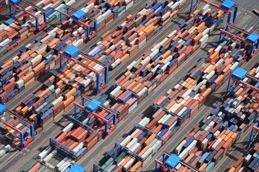
The Port of Hamburg dispelled reports in the past few days of bottlenecks in the supply of empty containers.
Germany's largest port said it conducted a flash poll this week asking shipping lines about the current situation, noting how the supply of empty containers is crucial for port customers in trade, industry, and transportation.
"The poll showed that shipping lines see no appreciable scarcity of equipment in the Port of Hamburg or the German seaports. Furthermore, they are not expecting any shortages to arise," the Port said.
Port of Hamburg added that the shipping lines mentioned several factors that provide for a stable supply of empty equipment including the fact that most shipping companies plan their disposition of empty boxes about 3 – 4 weeks in advance.
"Generally, they take advantage of markets with an oversupply, such as the USA, Great Britain, and Israel, as the source for empty containers in Hamburg or other Northern European ports. Direct shipping of empties from China is rare and has not been necessary recently," it said.
Axel Mattern, CEO of Port of Hamburg Marketing (HHM), said: “With the recovery of the Chinese economy, which is already making itself noticeable, shipping, cargo handling, and seaport-hinterland transport in China will be heading back toward normal operations.”
No shortage expected
In view of a slowing economy in Europe, we do not expect to see shortages in the supply of empty containers in Hamburg or the hinterland, he added.
HHM’s director pointed out that individual shipping lines might run into temporary bottlenecks in supply if short-term imbalances between the flows of import and export container shipping occur.
Scarcity can thus occasionally result from fluctuating supply and demand in inland areas.
The depots in the hinterland play an important role in supplying the market with empty equipment for shippers in the various regions.
According to Mattern, seaborne foreign trade, on the whole, can count on the situation easing as soon as shipping between Asia and Europe returns to normal and the demand for export containers declines in connection with the changing economic conditions.



